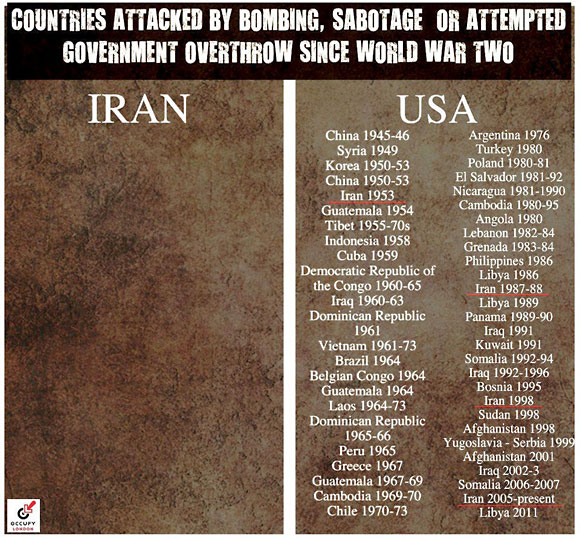
Trump Opposes Vote, Says It’s a Sign of Weakness
(February 12, 2020) — Slowed down previously by the impeachment, S.J. Res 68, the Iran War Powers Act challenge, is finally to come up in the Senate on Thursday. Debate is expected to begin early in the morning, with a vote later.
The resolution points out what is already true, that Congress has never authorized a US war against Iran, and that subsequently such a war would be illegal. The language also instructs the removal of US forces from any unauthorized hostility against Iran.
The resolution is expected to have overwhelming support among Democrats, with support among antiwar Republicans key to getting it passed. President Trump has issued Tweets opposing the resolution as a sign of weakness, claiming he’s “doing very well with Iran” and that Americans overwhelmingly supported his attacks on Iranian targets.
A number of amendments are under consideration for the resolution, with roll call votes expected for six amendments. Pushing amendments and spreading out the debate is the chosen tactic of Republican leadership that opposes the resolution.
Supporters say they are hoping for an organized debate ending at 1:45 pm, with a vote to follow. Others have said they expect the process to take all day, and the vote would be some time later.
ACTION: Those wishing to call their Senators to express their support for S.J. Res. 68 can find contact information here. Calls should be made as soon as possible, because the timing of the votes isn’t clear.
Senate Poised to Pass Resolution to Curb Trump’s War Authority on Iran

“This should not be controversial,” GOP senator says of war powers resolution.
(February 12, 2020) — The Senate is expected to pass a bipartisan war powers resolution on Thursday aimed at reigning in President Trump’s ability to use military action against Iran without prior Congressional approval.
Several Republican senators support the resolution, despite pushback from Trump and Republican leaders on Capitol Hill.
“We should not be at war with Iran unless Congress votes to authorize such a war,” Sen. Tim Kaine, D-Va., said on the Senate floor Wednesday. “While the president does and must always have the ability to defend the United States from imminent attack, the executive power to initiate war stops there. An offensive war requires a Congressional debate and vote. This should not be a controversial proposition.”
Kaine introduced the resolution last month after a drone strike, authorized by Trump, killed Iranian Gen. Qassem Soleimani.
The resolution underscores that Congress has the sole power to declare war, as laid out in the Constitution. The resolution also requires that any hostilities with Iran must be explicitly authorized by a declaration of war or specific authorization for use of military force. It does not prevent the U.S. from defending itself from an imminent attack.
Republicans including Sens. Todd Young of Indiana, Susan Collins of Maine, Mike Lee of Utah, and Rand Paul of Kentucky, support the resolution — guaranteeing that it has the 51 votes necessary to pass if all 47 Democrats also vote in support of the measure.
“This really is about the proper allocation of power between the three branches of government,” Lee said. “This should not be controversial. If you really look into it, it’s not controversial.”
Republican Sen. Jerry Moran announced late Tuesday that he, too, supports the resolution.
“The Constitution, in Article I, provides Congress the power to declare war — a responsibility I take seriously. The prospect of military action against Iran has consequences that ought to be considered by the full Congress on behalf of the people it represents. In supporting the War Powers Resolution, I respect the President’s obligation to defend against imminent threats while making sure any additional action is properly debated and approved by Congress as required by the Constitution,” Moran said in a statement provided to ABC News.
On Wednesday, Trump warned the Senate not to approve the resolution, saying it signals “weakness.”
“It is very important for our Country’s SECURITY that the United States Senate not vote for the Iran War Powers Resolution. We are doing very well with Iran and this is not the time to show weakness. Americans overwhelmingly support our attack on terrorist Soleimani . . ,” Trump tweeted.
“. . . If my hands were tied, Iran would have a field day. Sends a very bad signal. The Democrats are only doing this as an attempt to embarrass the Republican Party. Don’t let it happen!” he said.
Senate Majority Leader Mitch McConnell also opposes the measure, and said it is “too blunt and too broad.”
“Clearly, this resolution is not ready for prime time,” McConnell said on the Senate floor Wednesday. “I believe it is just an effort to broadcast a political message. But even that message can be harmful to our troops and to national security.”
“Let’s send the right message with our votes. Let’s defeat this misguided resolution,” he added.
Once the resolution clears the Senate, it will head to the House where it is expected to pass. But Trump is all but guaranteed to veto the resolution once it reaches his desk. The Senate does not currently have the 67 votes needed to override his veto.
Posted in accordance with US Code Title 17, Section 107 for noncommercial, educational purposes.